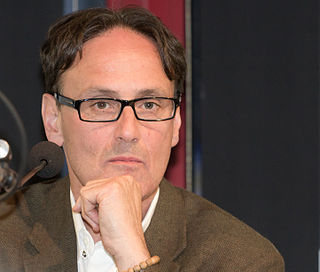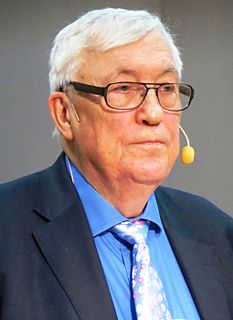A Quote by Alexander Haig
The loss of candor is grievous, and in my opinion it may yet prove to be mortal, because if we cannot discuss our problems in plain speech that describes reality, it is unlikely that we will be able to solve them.
Related Quotes
And I've come to the place where I believe that there's no way to solve these problems, these issues - there's nothing that we can do that will solve the problems that we have and keep the peace, unless we solve it through God, unless we solve it in being our highest self. And that's a pretty tall order.
Teaching and writing, really, they support and nourish each other, and they foster good thinking. Because when you show up in the classroom, you may have on the mantle of authority, but in fact, you're just a writer helping other writers think through their problems. Your experience with the problems you've tried to solve comes into play in how you try to teach them to solve their problems.
Maybe philosophical problems are hard not because they are divine or irreducible or meaningless or workaday science, but because the mind of Homo sapiens lacks the cognitive equipment to solve them. We are organisms, not angels, and our minds are organs, not pipelines to the truth. Our minds evolved by natural selection to solve problems that were life-and-death matters to our ancestors, not to commune with correctness ot to answer any question we are capable of asking.
Throughout my life, I have been fascinated by predictability and frustrated by our inability to predict. I don't believe it makes sense for our generation to believe or pretend that we can solve the problems of the future because do not understand what these problems will be. Just do this thought experiment: Imagine you're in month of May 1914, and try to work out a plan of action for the next 100 years! Hardly anything will make sense.
We are more than our problems. Even if our problem is our own behavior, the problem is not who we are-it's what we did. It's okay to have problems. It's okay to talk about problems-at appropriate times, and with safe people. It's okay to solve problems. And we're okay, even when we have, or someone we love has a problem. We don't have to forfeit our personal power or our self-esteem. We have solved exactly the problems we've needed to solve to become who we are.
Convictions following the admission into evidence of confessions which are involuntary, i.e., the product of coercion, either physical or psychological, cannot stand. This is so not because such confessions are unlikely to be true but because the methods used to extract them offend an underlying principle in the enforcement of our criminal law: that ours is an accusatorial, and not an inquisitorial, system - a system in which the State must establish guilt by evidence independently and freely secured, and may not, by coercion, prove its charges against an accused out of his own mouth.



































